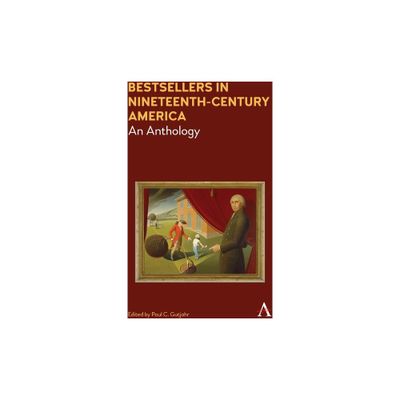Home
Xenocitizens: Illiberal Ontologies Nineteenth-Century America
Loading Inventory...
Barnes and Noble
Xenocitizens: Illiberal Ontologies Nineteenth-Century America
Current price: $125.00


Barnes and Noble
Xenocitizens: Illiberal Ontologies Nineteenth-Century America
Current price: $125.00
Loading Inventory...
Size: Hardcover
*Product Information may vary - to confirm product availability, pricing, and additional information please contact Barnes and Noble
In
Xenocitizens
, Jason Berger returns to the antebellum United States in order to challenge a scholarly tradition based on liberal–humanist perspectives. Through the concept of the xenocitizen, a synthesis of the terms “xeno,” which connotes alien or stranger, and “citizen,” which signals a naturalized subject of a state, Berger uncovers realities and possibilities that have been foreclosed by dominant paradigms. Innovatively re-orienting our thinking about traditional nineteenth-century figures such as Ralph Waldo Emerson and Henry David Thoreau as well as formative writers such as William Wells Brown, Martin R. Delany, Margaret Fuller, and Harriet Beecher Stowe,
X
enocitizens
glimpses how antebellum thinkers formulated, in response to varying forms of oppression and crisis, startlingly unique ontological and social models as well as unfamiliar ways to exist and to leverage change. In doing so, Berger offers us a different nineteenth century—pushing our imaginative and critical thinking toward new terrain.
Xenocitizens
, Jason Berger returns to the antebellum United States in order to challenge a scholarly tradition based on liberal–humanist perspectives. Through the concept of the xenocitizen, a synthesis of the terms “xeno,” which connotes alien or stranger, and “citizen,” which signals a naturalized subject of a state, Berger uncovers realities and possibilities that have been foreclosed by dominant paradigms. Innovatively re-orienting our thinking about traditional nineteenth-century figures such as Ralph Waldo Emerson and Henry David Thoreau as well as formative writers such as William Wells Brown, Martin R. Delany, Margaret Fuller, and Harriet Beecher Stowe,
X
enocitizens
glimpses how antebellum thinkers formulated, in response to varying forms of oppression and crisis, startlingly unique ontological and social models as well as unfamiliar ways to exist and to leverage change. In doing so, Berger offers us a different nineteenth century—pushing our imaginative and critical thinking toward new terrain.


















